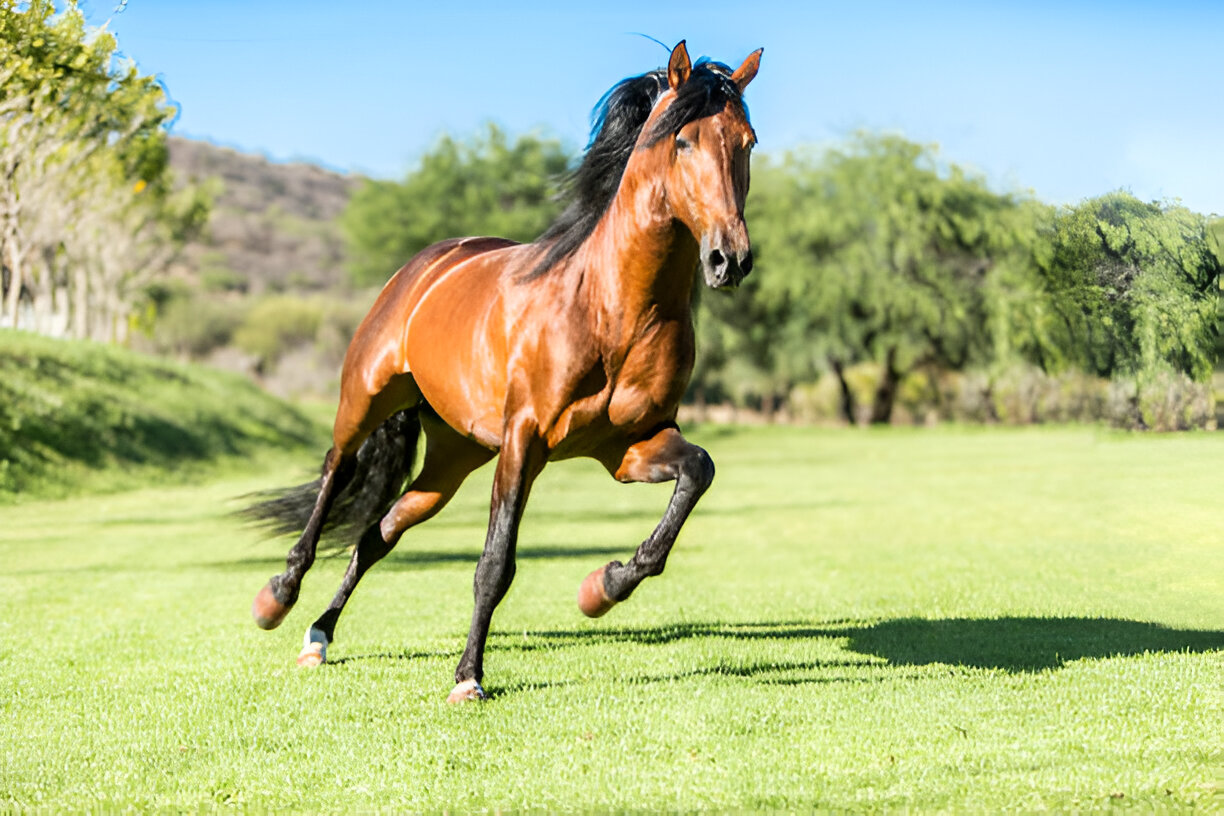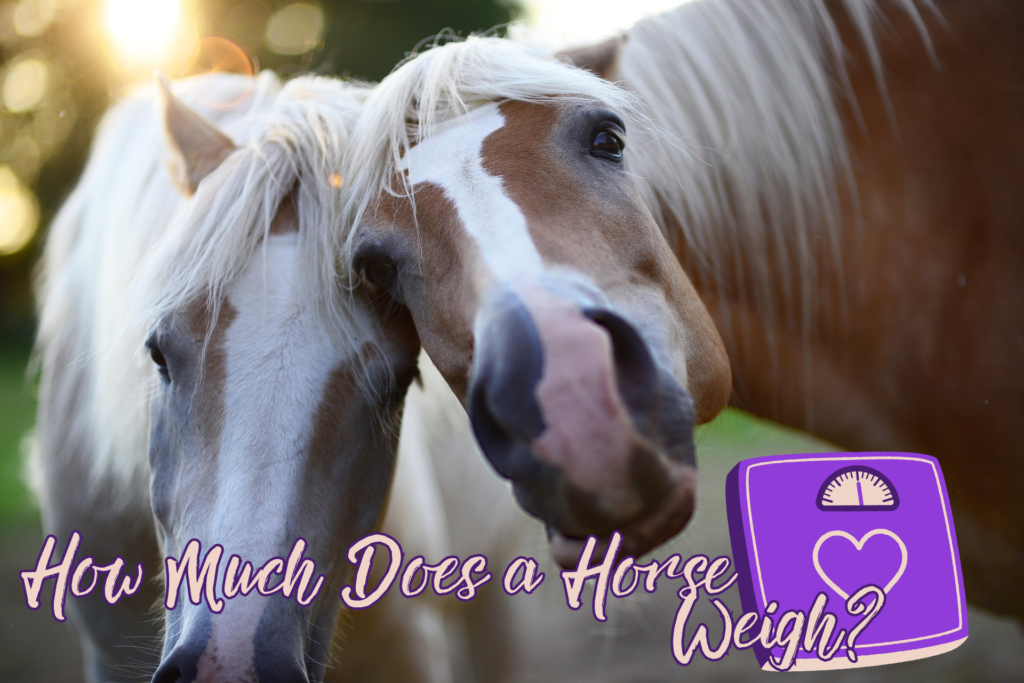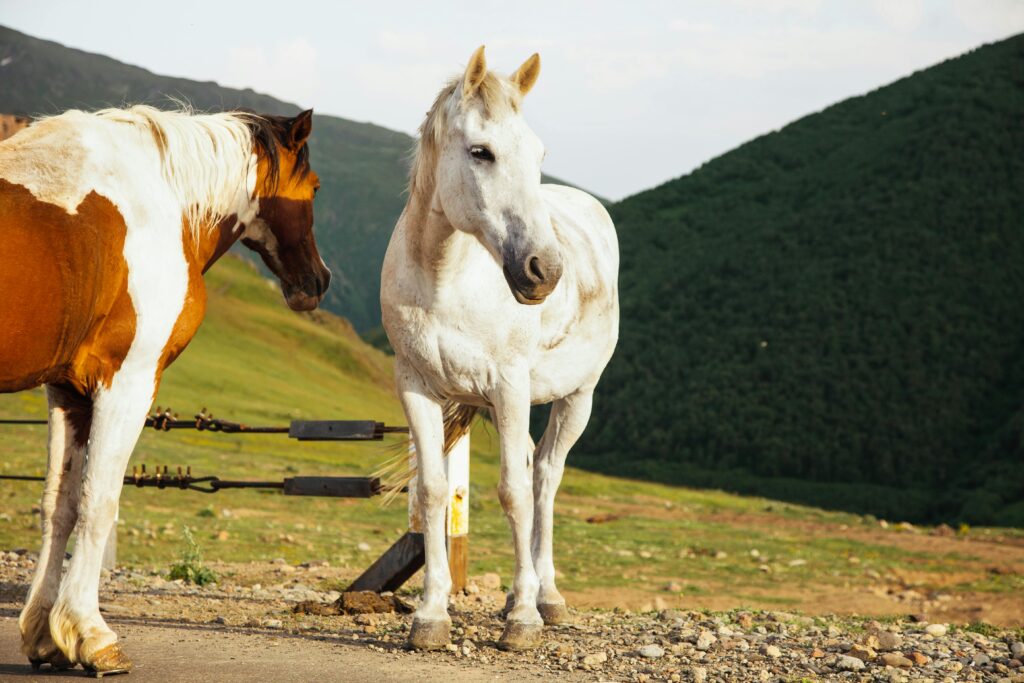One of the most famous and renowned horse breeds in the world, the Thoroughbred is recognized by its outstanding speed, agility, and fighting spirit. But for any equestrian, breeder, and racing enthusiast to take care of these animals, train them, and breed them further, it becomes important to understand just how long this magnificent horse breed lives for.
In this blog post, we will dive deep into what determines their lifespan, how to ensure that Thoroughbreds live a long and healthy life, and exactly what to expect from them with increasing age.
Lifespan of Thoroughbreds
Understanding the Life Span of Thoroughbreds
Average Life Span
The average life-span of a Thoroughbred horse is between 25 to 30 years, but this can vary from many factors because of genetics in nature, taken care of and lived. Most of them normally do not succeed beyond their middle 30s but living into your late 30s or early 40s. These cases are very rare.
Factors Affecting Life-span
Following factors affect the span of life for Thoroughbred horses:
- Genetics: Similar to humans, genetics is one of the great factors in determining life expectancy in a Thoroughbred. Horses with a very good genetic background, with no hereditary health problems, may have better longevity.
- Diet and Nutrition: Good nutrition is critical in enhancing the life of Thoroughbreds. A well-balanced diet comprising all essential components will go a long way in preventing many health complications and prolong the lives of Thoroughbreds.
- Exercise and Activity Level: Thoroughbreds are very active and energetic horses. A regular exercise regimen is necessary for their physical and mental well-being. However, too much or the wrong kind of exercise can result in injuries and a host of health issues.
- Healthcare and Veterinary Attention: Regular check-ups with a veterinarian, vaccinations, and timely treatment of problems will go a long way in ensuring a long and healthy life for Thoroughbreds.
- Living Conditions: The living environment of a Thoroughbred greatly influences its lifespan. A clean, safe, and comfortable living condition is highly vital for their living.
- Stress and Mental Health: Thoroughbreds are sensitive animals, and stress can have a disastrous effect on their health. A calm and stable environment is quite necessary for maintaining their mental health.
Stages of a Thoroughbred’s Life
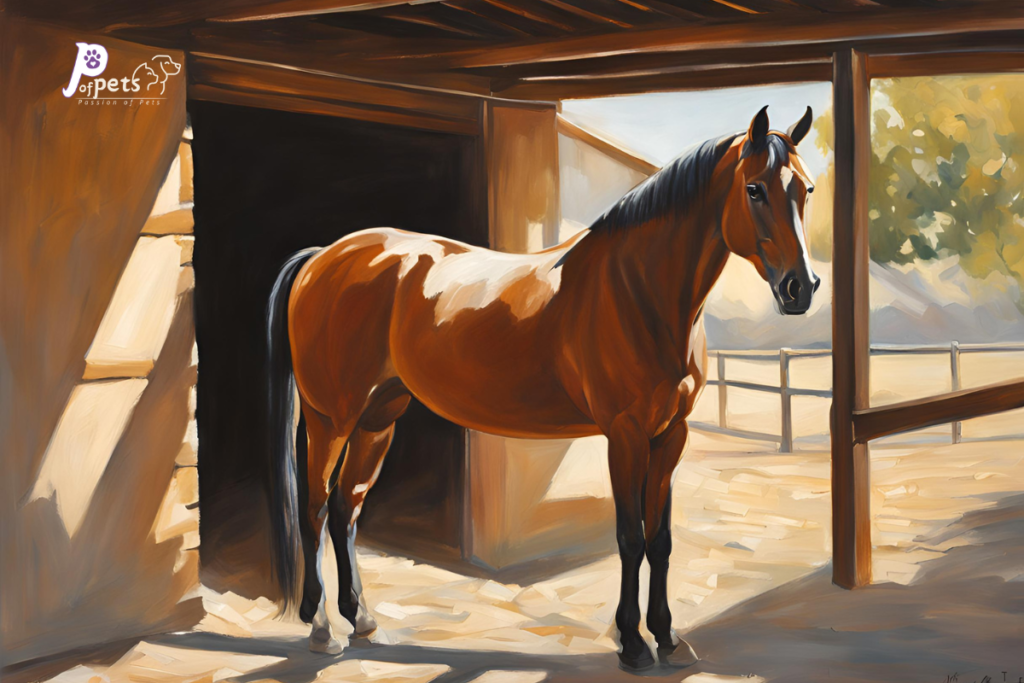
Knowing the different life stages a Thoroughbred passes through should help give them relevant care in these times.
Foal Stage – 0-1 Year
Foal stage is the very first year in a Thoroughbred’s life. During this time, they take much reliance from their mothers for nutritional purposes and protection. Proper nutrition, socialization, and early training during this period will go a long way in helping these horses develop healthily.
Yearling Stage – 1-2 Years
Yearlings are young Thoroughbreds between one and two years old. This is a very tender age for growth and development. Yearlings should be introduced to basic training and socialization to prepare them for future training and racing.
Juvenile Stage (2-3 Years)
The juvenile stage is the period when Thoroughbreds are usually introduced to more intensive training; it is also the age when most Thoroughbreds start racing. Extra care must be taken not to overtrain them at this stage, and one must always look out for signs of stress or injury.
Prime Stage (4-10 Years)
The prime stage is when the Thoroughbreds are at their peak physically. This is the period in which they can be most competitive in racing, along with other equestrian sports. To maintain health and performance, proper care and nutrition, along with regular veterinary check-ups, are required.
Mature Stage (11-20 Years)
As Thoroughbreds reach the mature years, they may slow down their pace in races and retire. Indeed, they still can be able to take part in other equestrian activities that include show jumping, dressage, or riding for pleasure. Chances are their diet and training should be adjusted to meet their requirements.
Senior Stage (21+ Years)
Mature Thoroughbreds are a different story altogether. Development of several age-related problems, such as arthritis or dental issues, is not uncommon, but such can be managed through regular visits to a veterinarian, along with an appropriate diet and exercise to give them a continuing good quality of life.
Common Health Issues in Thoroughbreds
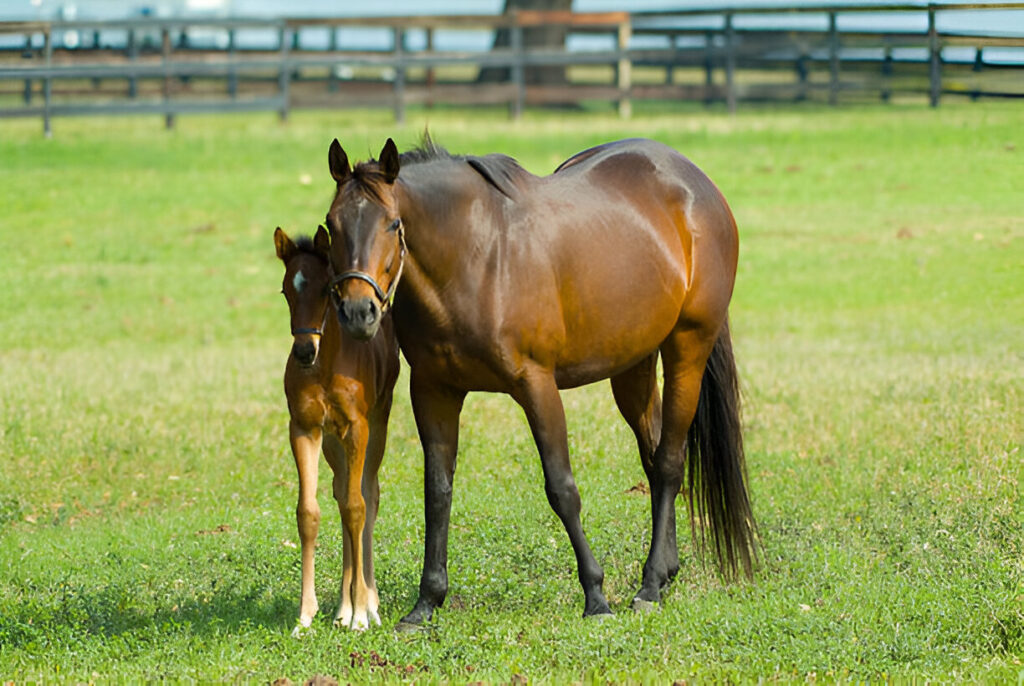
Some of the health issues prevalent in this breed have an effect on its lifespan. It is always important to know the health concerns so that prevention or early measures may be instituted for better management.
Musculoskeletal Injuries
Being a highly active and athletic horse, musculoskeletal injuries, including fractures, tendonitis, and ligament damage, can easily occur. These could be prevented by proper training and conditioning and the immediate treatment of any injuries sustained.
Respiratory Issues
Equally, they may suffer respiratory issues such as EIPH and RAO. A good air environment and restriction on the intensities of the horses’ training would prevent this issue.
Digestive Problems
Another frequent problem faced by Thoroughbreds includes colic and gastric ulcers, which occur because of digestive disorders. A well-controlled diet, scheduled times for eating, and lesser stressors on the horses may prevent them from such situations.
Dental Problems
Dental problems, such as tooth decay and gum disease, may arise in Thoroughbreds with increased age. These problems can be prevented with proper dental care and regular dental check-ups.
Reproductive Problems
Thoroughbred breeding can be plagued with a host of reproductive issues such as infertility, and complications of pregnancy and foaling. Proper management practices coupled with veterinary care are very important to ensure successful breeding and healthy offspring.
Tips to Keep Your Thoroughbred Healthy and Living Long
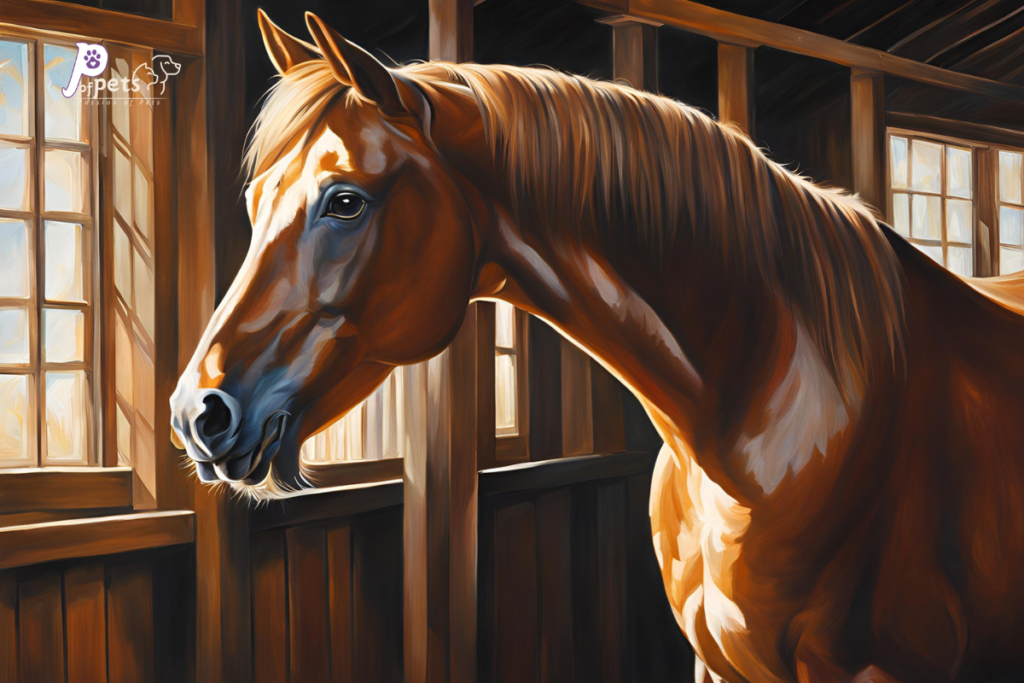
Provide a Balanced Diet
A well-balanced diet addressing the nutritional needs of a Thoroughbred is the secret behind this breed’s good health and long life. The diet should contain high-quality forage, grains, and supplements if needed. It is always better to consult a veterinarian or an equine nutritionist to provide a customized diet plan for your Thoroughbred.
It is quite important that a Thoroughbred regularly exercises both for physical and mental health. Care must be taken, however, to avoid overtraining and allow plenty of time to rest and recover. A general exercise program including cardio and strength will help to avoid injury and support longevity.
Routine Veterinary Care
Basic veterinary check-ups, vaccinations, and timely treatment of any health issues are the fundamentals for making sure the Thoroughbred lives a long and healthy life. Equally important is deworming and dental care.
Safe and Comfortable Living Conditions
Safety, comfort, and cleanliness of living are also another important aspect of creating the best way to take care of a Thoroughbred’s needs. To be more specific, this includes proper stable management, good ventilation, and protection against extreme weather conditions.
Mental Well-being
Thoroughbreds have sensitive natures; therefore, stress ultimately affects them negatively. Providing peaceful and consistent surroundings, socialization regularly, and challenging the mind should be considered ways to keep them mentally healthy.
Monitoring and Managing Stress
The levels of stress that Thoroughbreds can be subjected to may greatly affect not only their health but also their life expectancy. Consequently, careful attention should be paid to the changes in behavior or appetite that indicate the appearance of stress, with consequent actions toward its limitation and reduction. This may include providing a consistent routine, minimizing changes in their environment, and ensuring they have adequate rest and relaxation.
Conclusion
The lifespan of a Thoroughbred depends on so many factors, like genetics, food, exercise, health checkups, and living condition. Once you understand these aspects and take proper care during the different stages of his life, you will be sure that your Thoroughbred should live a long, healthy, and full-of-life life. Whether they are competing on the track, participating in equestrian sports, or enjoying a peaceful retirement,
Thoroughbreds bring joy and companionship to those who care for them. With proper care and attention, these magnificent animals can continue to thrive and inspire for many years to come.
By following the guidelines and tips provided in this blog post, you are able to help ensure your Thoroughbred leads a long, healthy life. The secret to having Thoroughbreds live long lives is giving them the best living, nutrition, and health. Whether you are an avid horse rider or a new owner of a Thoroughbred, you need the working understanding of what these unique horses really need.
Yuns Legdm is a passionate advocate for pet care and the founder of this website, dedicated to providing valuable information for fellow pet lovers and veterinary professionals worldwide. With a deep love for animals, Yuns created this platform to connect passionate pet owners with expert insights from veterinarians around the globe.
This website grows with you—the passionate pet owners and veterinary experts—creating a trusted space where knowledge, experience, and love for animals come together. Whether you’re seeking advice on pet health, nutrition, or general well-being, this platform is here to support you on your journey of responsible and loving pet care.

